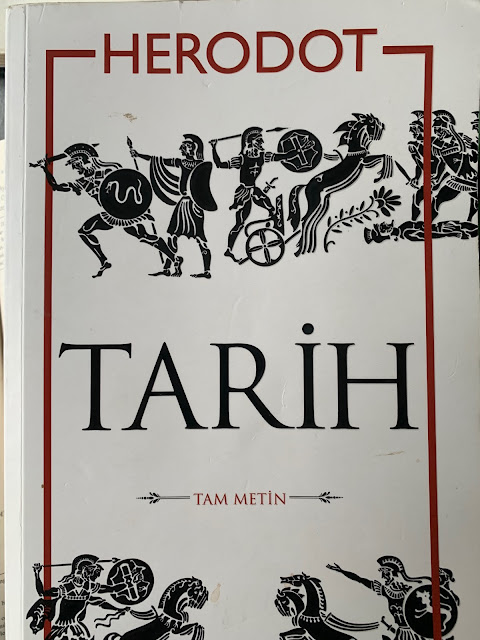 |
| Herodotus the History |
*
Bu bilgi hiçbir yerde yok!
Akkadian Sumerian Etruscan Turukku ProtoTurkic Proto Turkic Scythian Sarmatian Thracian PreGreek Pre-Greek Carian Sidetic Luwian Lycian Lydian Asianic Kurmali Karoshthi Indus Script Paulys RE Indo European IndoEuropean IndoGerman Etymology Kelime Köken Kelimeköken Turkish Türk Proto Altaic Uralic No Main Stream Ideas No MainsStream Something New No Racism Against EuroCentrism No Euro Centrism! I'm looking at the things through the Turkic window! * Türkic names in Pliny Strabon Homer Pauly RE
 |
| Herodotus the History |
*
Bu bilgi hiçbir yerde yok!
 |
| Poseidon / Neptune |
www'de gezerken denk geldim, paylaşayım!
Antik Yunanlıların denizler tanrısı Poseidon'u bilmeyen azdır. İskitlerin denizler tanrısı Thamimasades/Thagimasades'i ise bilen azdır. Aşağıda, bu adın Türkçe 'Tengiz Ata'dan (Deniz Ata) getirilmesini okumak güzel. Betik
There is a deity of the Scythian called Oitosuros.
I read always the OI/OE in Greek and Latin texts as AY (Turkic for moon) like in Oibarsios (Read more about him here on this blog: AYBARS and his Latin/Greek reflections )
Now there is a deity called AY-Tosur-(OS Greek suffix)
And there is a very good Kyrgyz Turkic verb called Tosuray-, meaning to get wide.
Maybe Ay-tosur meant the full-moon?
*
İskitlerin Oitosuros adında bir tanrısı vardır.
Yunanca ve Latince metinlerde OI/OE'yi her zaman Oibarsios'ta olduğu gibi AY (ay için Türkçe) olarak okurum (Onun hakkında daha fazlasını bu blogda okuyun: Aybars ve Latince/Yunanca yansimalari )
AY-Tosur-(OS Yunanca yapım eki) adında bir tanrı var ve adı şöyle açıklanabilir belki:
Kırgız Türkçesinde genişlemek anlamına gelen Tosuray- adında çok güzel bir fiil var.
Belki Ay-tosur dolunay demekti...
*
UPDATE Mai 2025
Oitosyros is the equivalence of Apollo by the Scythians. Wiki says:
"However, while usually Greek festivals were celebrated at the full moon, all the feasts of Apollo were celebrated on the seventh day of the month..."
Tosur- means to get full, and maybe Ay-tosur meant the moon that is getting full.
Possible?
*
GÜNCELLEME Mayıs 2025
Oitosyros, İskitler tarafından Apollon'un eşdeğeridir. Wiki şöyle diyor:
"Ancak, Yunan festivalleri genellikle dolunayda kutlanırken, Apollon'un tüm bayramları ayın yedinci gününde kutlanırdı..."
Tosur- dolmak anlamına gelir ve belki Ay-tosur, dolan ay anlamına gelir.
Mümkün mü?
*
There are 2 other names that have AY and Tolu:
These are:
*
Içinde AY ve Tolu'yu olan 2 ad daha var:
Bunlar:
Oetolinus ~ Aytolun is reverse form of TOLUNAY: Full moon
Oetylus ~ AYTOLU: full of moon
*
Uzunbacak Adem
 |
| Luperca und Remus und Romulus |
Luperca, the she-wolf is the mother of Remus und Romulus.
She is probably of Etruscan origin. They are all very popular and well-known mythical characters.
A short cut to Turkic mythology: Almost all the Turkic tribes have the the wolf as totem animal and there are many legends of a she-wolf that was breastfeeding a young boy who was going to be the new chieftain of the Turks.
The Etruscan, a people who spoke a Non-Indo-European language, having a distinct culture to adjacent cultures have similarities to Turkic culture.
Many of you know about this issue above.
*
Adını büyük olasılıkla ilk defa burada okuyacağınız dişi kurt Luperca, Remus ve Romulus'un annesidir (Yukarıdakş ilk görsel).
Muhtemelen Etrüsk kökenlidir. Üçü de çok popüler ve tanınmış efsanevi karakterlerdir.
Türk mitolojisine kısa bir özet: Hemen hemen tüm Türk kabilelerinde totem hayvanı kurttur ve Türklerin yeni başbuğu olacak genç bir çocuğu emziren bir dişi kurdun birçok efsanesi vardır.
Hint-Avrupa dışı bir dil konuşan, komşu kültürlerden farklı bir kültüre sahip olan Etrüskler, Türk kültürüyle benzerliklere sahiptir.
Birçoğunuz yukarıdaki konuyu biliyorsunuz.
*
What is now new Uzunbacak?
The name, the name.
Who knows the name of this she-wolf?
Her name is LUPERCA. Etymologically an Indo-European word.
But it is not so easy to explain.
Wiktionary says:
*
Şimdi yeni olan nedir Uzunbacak?
Dişi kurdun adı!
Bu dişi kurdun adını kim biliyor?
Adı LUPERCA. Etimolojik olarak bir Hint-Avrupa kelimesi.
Ama açıklamak o kadar kolay değil.
Vikisözlük diyor ki:
*
Now my turn:
There is a word a real old Turkic word: BÖRÜ
In many Turkic languages we find that word. In Tuvan dialect we see it with a -K at the end:
Börük.
It is alls possibly the root of Russian (via Porto-Bulgarian language (a Turkic language anyway))
*
There is an other very old Turkic word ULU meaning great, respectful..
ULU sözcüğünü açıklamaya gerek var mı?
*
NOW:
Wir connect these 2 Turkic words together: ULU-BÖRÜK (Great Wolf).
when the initial U falls away then we have > LU-BÖRÜK and add the Italian female suffix -A to the end we have: LU-BÖRÜK-A.
*
And now we have two words: LUPERCA and LU-BÖRK-A
(U)LU BÖR(Ü)K could have turned into LUPERCA.
*
Şimdi:
Bu 2 Türkçe kelimeyi birbirine bağlayın: ULU-BÖRÜK (Great Wolf)
ilk U düşerse> LU-BÖRÜK olur sözcük ve İtalyan kadın sonekini -A sonuna eklersek:
>LU-BÖRÜK-A adlı sözcüğüelde ederiz!
((U)LU BOR(Ü)K LUPERKE dönüşmüş olabilir.
*
Ve şimdi iki kelimemiz var: LUPERCA ve LU-BÖRK-A
*
Uzunbacak Adem
Robert Beekes - Pre-Greek Lexicon * Robert Stephen Paul Beekes is THE leading expert on Indo-European and Pre-Greek. I have searched and ...
